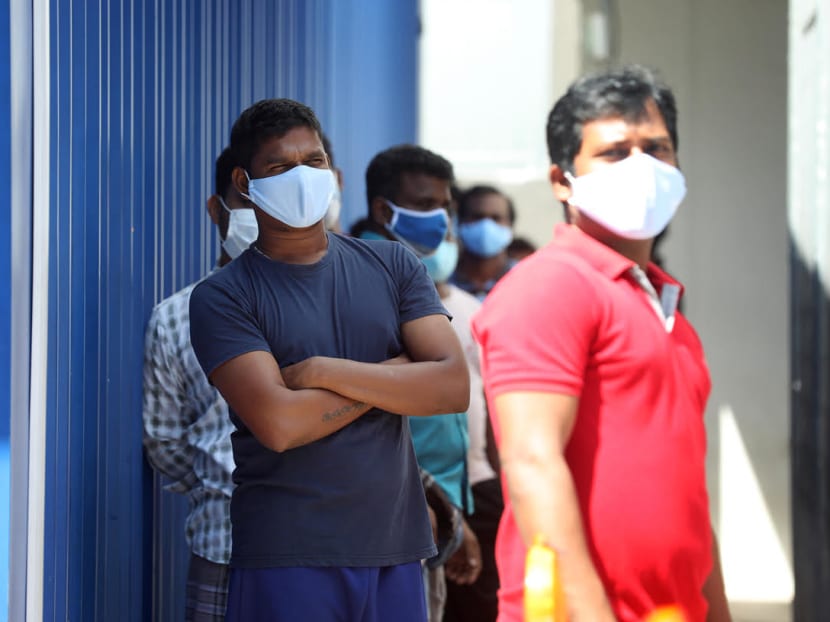Discussions on lifting welfare of migrant workers must include workers’ voices
I refer to the news feature, “The Big Read: Solving S’pore’s foreign worker problem requires serious soul-searching, from top to bottom” (May 9).

The writer says that discussions on improving the welfare of migrant workers in Singapore must include workers’ voices.
I refer to the news feature, “The Big Read: Solving S’pore’s foreign worker problem requires serious soul-searching, from top to bottom” (May 9).
It is, indeed, timely for soul-searching as the number of foreign workers falling ill with Covid-19 is now in the tens of thousands.
It is rare for any discussion on the welfare of workers to seek their views. While service providers as varied as the Government, retailers and public toilet managers frequently seek to maintain customer satisfaction, the satisfaction of workers as dormitory residents — and therefore customers — does not seem to feature anywhere.
Even if the dormitory rent is paid by employers, it comes from the overall salary package of the worker. The worker is the customer, but is not treated as one.
It is also disappointing that every discussion about workers’ welfare is prefaced by a reservation born of cost considerations. In these cost-benefit calculations, have we factored in the value created by the workers’ low wages or the savings that we the consumers have made?
How much more savings will justify paying more for the workers’ welfare? Cost calculations do not happen in a vacuum.
The worry over costs needs a reality check, too. Nominated Member of Parliament and economist Walter Theseira has called for a study to determine what makes up a reasonable standard for living space.
To expand on his proposal, I suggest that the study look into proposing alternatives to existing arrangements, where 12 to 20 men are packed into a room, and the costs involved.
For such a study to make an impact, the voices of workers must be heard.
But workers are unlikely to speak up for fear of reprisals. This consideration must be factored into the design of the study. Keeping in mind their weak bargaining power and protecting their right to speak up should be a concerted effort in any future interaction with foreign workers.
It should not be the case that workers are allowed to speak up only when spoken to. This speaks of systemic discrimination if workers have to suffer in silence.
Let us not lose sight of what cannot be calculated — the dignity of a person. Reducing social and human concerns into dollars and cents does no justice to workers or to us as Singaporeans.
Their opinions will be perceived as valuable if we treat them as equals.
If we recognise that one’s lot in life is the luck of the draw, we will also recognise that the boundaries we draw between us and them are artificial. If we hailed from countries where life opportunities are much more limited, we would have also decided to go abroad in search of a job.
As affluent as we are, we can work our wealth for the good of all, particularly for vulnerable members of our community, which must include these workers.
This is what makes a nation great. Low-cost labourers are not cheap lives, because every life has worth.
Have views on this issue or a news topic you care about? Send your letter to voices [at] mediacorp.com.sg with your full name, address and phone number.






